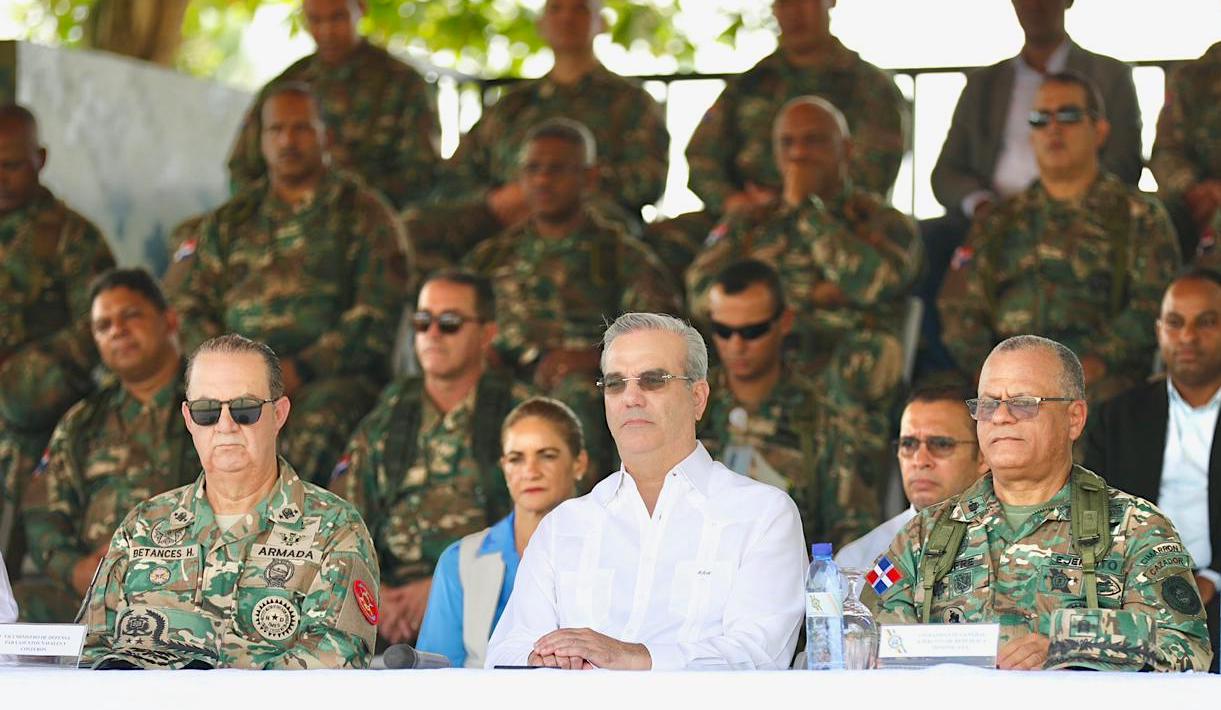 |
| President Abinader announced border is closed. Pres.RD |
In the heart of the Caribbean, a dispute between neighboring nations is intensifying, raising concerns of what some experts are now referring to as "Water War I." The Dominican Republic and Haiti, two countries sharing the island of Hispaniola, have found themselves entangled in a bitter conflict over the canalization of the Masacre River. Recent developments underscore the complex nature of international water disputes and the potential far-reaching ramifications.
The Dominican government, in a letter sent to President Jovenel Moise shortly before he was assassinated in 2021, made a startling admission: around two decades ago, authorities from both nations allowed for limited canalization along the Masacre River. However, the letter emphasizes that the hydric reality today is "dramatically different." This acknowledgement reveals the dynamic nature of water resources management, particularly in regions susceptible to climate change and increased water demands.
The implications of the canalization project are profound, with both countries at risk of experiencing devastating consequences. The alteration of the river's course threatens to cause flooding on both sides of the island, endangering the safety and livelihoods of countless communities. In the Dominican Republic, entire towns could face water shortages, creating a dire humanitarian crisis.
Moreover, the environmental toll is a significant concern. The Dominican government argues that the delicate mangrove ecosystem, reliant on the Masacre River's natural flow, could face irrevocable damage. The loss of critical mangroves could disrupt regional biodiversity for a significant part of the island. Haiti's ecosystem has already collapsed, with the country retaining less than 2% of its forests, with more than half of its topsoil having washed away into the ocean. Meanwhile, the Dominican Republic enjoys more than 40% forest cover.
One unnamed government official within the Abinader administration issued a stark warning, stating that if Haiti proceeds with the canalization and the irrigation of the Maribaroux region, it could lead to a system-wide collapse of many Dominican mangroves. This chilling prediction underscores the potential for ecological catastrophe.
"The undeniable fact is that the Haitians destroyed the ecosystem on their side of the island, and with the canalization of the Masacre River, they now threaten to destroy the environment on our side of the island. They cross over and chop down endangered trees, setting fires in the middle of the forest to make charcoal, putting our flora and fauna in danger. The closure of the border isn't just about water, that was simply the straw that broke the camel's back," he added.
The border between Haiti and the Dominican Republic -- now closed by land, sea, and air -- has historically been a site of contention between the two nations, and now it finds itself militarized to alarming levels. Last night, Dominican President Luis Abinader delivered an address to the nation, informing the world that he would not back down from the border closure until the Haitian government ceased all work on the canal.
However, in private communications with the Dominican government, Haitian Prime Minister Ariel Henry confessed that he would be unable to stop the work, owing largely to the fact that Haiti is now a failed state without an effective enforcement apparatus.
President Abinader, in his national address, clarified that the Masacre River has its source in the Dominican Republic, with most of its waters flowing inside of Dominican territory, with only a few kilometers crossing over into Haiti.
Considering that the Haitian state is unwilling and unable to stop ongoing construction work on the canal, the Dominican government will likely find itself pressured by nationalist elements to launch a military incursion into Haiti, destroying the canal and potentially establishing a demilitarized zone that extends into what has been Haitian territory for more than 90 years.
Haiti has no army, no powerful international backers to come to its aid. President Abinader appears firm in his commitment to keep the border closed, and this means that very soon, hunger in Haiti will increase to levels that could shock the conscience, considering that the country imports almost everything from the Dominican Republic.
No one can predict exactly how the tense situation will evolve, but one thing is certain: millions of Haitians will continue suffering as the world watches with indifference.
